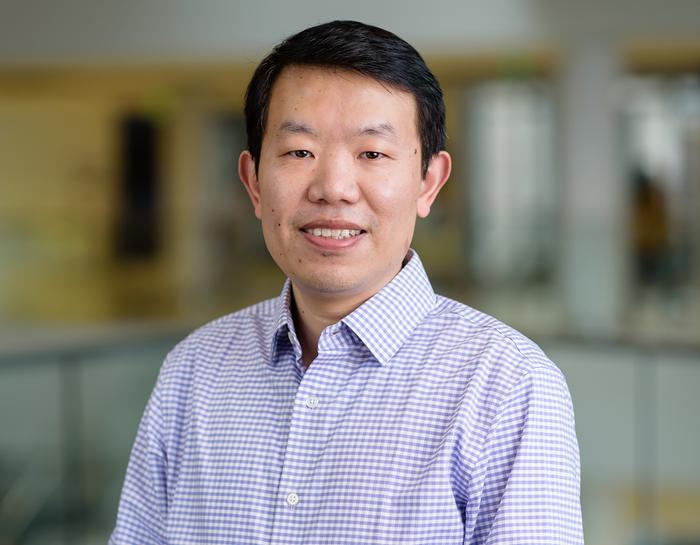UMass Lowell scientists developing low-cost, portable biosensors to safeguard the health of marine and freshwater environments have received $1 million from the National Science Foundation to support their work.

Credit: Adrien Bisson
UMass Lowell scientists developing low-cost, portable biosensors to safeguard the health of marine and freshwater environments have received $1 million from the National Science Foundation to support their work.
The initiative, called BioSPACE, which has sustainability, health and economic impacts, aims to provide farmers, environmental agencies and water-reliant industries with portable, easy-to-use and inexpensive sensors to rapidly detect germs that threaten marine and freshwater life. Fish, shellfish and algae, whether in the ocean or grown in aquaculture farms, are among the species that would benefit.
“This is critical in safeguarding public health, particularly in vulnerable coastal areas that provide communities with food, recreation and protection from storms,” said UMass Lowell electrical engineering Professor Yan Luo, who is leading the project. Joining him in the endeavor are UMass Lowell environmental engineering
Associate Professor Sheree Pagsuyoin, biology Associate Professor Frederic Chain, and biology Assistant Professor Sarah Gignoux-Wolfsohn. Other partners include Northeastern University, the University of Arizona, and Woodpecker Microsystems of Houston, Texas.
The team’s first goal is to develop sensors and a data analytics platform that signal the presence of bacterial and viral pathogens such as Vibrio and Pseudomonas, which attack shrimp and can also give rise to diseases in humans, according to Luo.
According to the U.S. National Oceanic and Atmospheric Administration, in 2020, marine and freshwater aquaculture farms in the United States produced 658 million pounds of fish, crustaceans, shellfish and algae valued at $1.5 billion. Based on value, more than 80% of that aquaculture consists of bivalve mollusks such as oysters, clams and mussels, with salmon and shrimp making up most of the rest.
Waterborne pathogens can occur naturally in the environment or be transmitted from infected species. Human activity can also introduce pathogens such as norovirus and E. coli, which enter aquatic ecosystems through sewage discharges and farm runoff, according to Luo.
“This contamination can threaten fisheries, recreational areas and the sustainability of the increasingly important aquaculture industry,” he said. “Aquatic pathogens that infect commercially cultivated animals can cause disease outbreaks that can wipe out entire aquaculture farms.”
According to the researchers, the economic burden caused by waterborne diseases exceeds $3 billion in direct health care costs each year in the United States. Worldwide, aquaculture losses reach more than $6 billion a year.
“Existing technologies for detecting waterborne pathogens – such as the polymerase chain reaction, or PCR, test – are too slow and costly for large-scale deployment,” Luo said. “Delayed test results can lead to the spread of pathogens, which can progress to coastal contamination and extensive aquaculture losses.”
BioSPACE is supported by research undertaken by UMass Lowell students, who are working side by side faculty and experts in the lab. They are electrical engineering doctoral candidate Calvin Ng and environmental engineering doctoral candidate Nerissa Molejon, both of whom hail from Lowell; electrical engineering graduate student Dmitri Hunt of Waltham; and undergraduate students Chloe Chanthompalit, an electrical engineering major from Lowell; and Alex Ryzi, an environmental engineering major from Littleton, Massachusetts.
Media contacts:
Emily Gowdey-Backus, director of media relations
Nancy Cicco, assistant director of media relations
About UMass Lowell
Massachusetts’ top public university, UMass Lowell is a national research university in the heart of a Gateway city. The university offers its students bachelor’s, master’s and doctoral degrees in business, education, engineering, fine arts, health, humanities, sciences and social sciences. UMass Lowell delivers high-quality educational programs, vigorous hands-on learning and personal attention from leading faculty and staff, all of which prepares graduates to be leaders in their communities and around the globe. www.uml.edu




